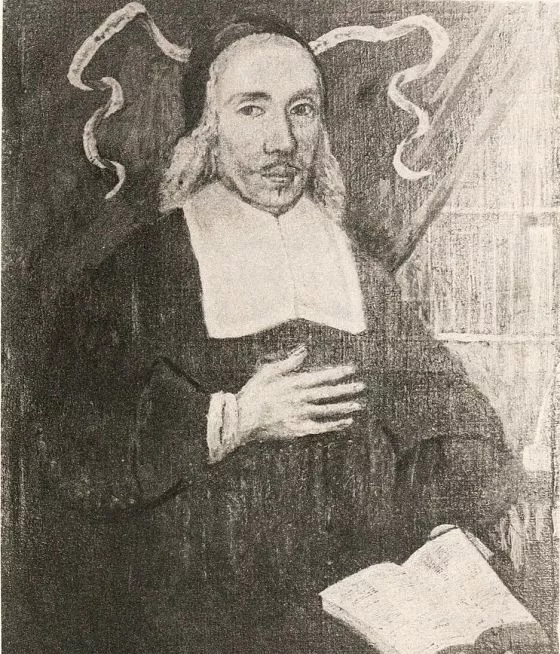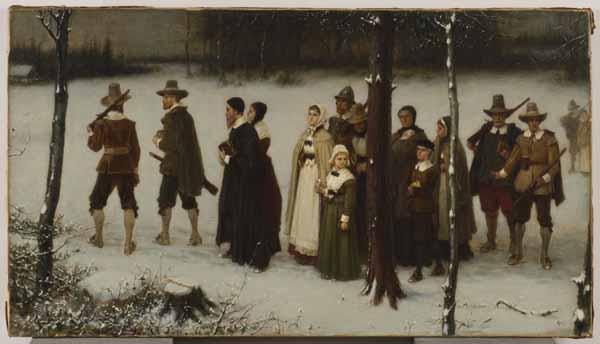
An interview with Israel Benporat
JMC Resident Historian Elliott Drago sat down with JMC Scholar Israel Benporat to discuss his work on Puritan attempts to implement Mosaic Law during the colonial era. Dr. Benporat serves as a lecturer at Yeshiva University in the Department of History and in the Straus Center for Torah and Western Thought.
ED: What inspired you to become a historian?
IB: In high school, a teacher recommended Jill Lepore’s New York Burning (2005), a microhistory of a suspected slave conspiracy in 1741. The way Lepore artfully interwove argument and narrative captivated me. As an undergraduate student at Yeshiva University, I originally intended to become a lawyer, but I found myself increasingly drawn to academia. I then completed a PhD in History at CUNY Graduate Center, where I had the privilege of studying under David Waldstreicher, whose rigorous scholarship has served as a model for my own research.
ED: What is your area of specialty, and what sparked your interest in that topic?
IB: I specialize in early American history, focusing on Puritan New England. I first encountered Puritanism in an undergraduate seminar on the Atlantic world. Having studied Jewish law for many years, I was fascinated by the Puritans’ attempts to use the Bible as a legal and political text. I wrote a research paper exploring how Puritans tried to implement the Mosaic death penalty for adultery. This essay became my writing sample for grad school applications, evolved into a dissertation chapter, and will soon be published in the Journal of Early American History.
ED: What has your research taught you about America’s founding principles and history?
I’ve come to see how deeply early American political thought drew on the Bible and other Hebraic sources. You can’t fully grasp America’s founding without studying its roots in religious ideas. Scripture has been at the center of the American story since the very beginning.
Cotton’s ministry
ED: Who was John Cotton, and what makes him such an important figure in your work?
IB: John Cotton was a distinguished Puritan minister in England who arrived in Massachusetts in 1633. He both served as a spiritual leader in the colony and deeply engaged with political issues. What’s fascinating about Cotton is his unique emphasis on following Mosaic law. In 1636, he drafted a legal code that cited Scripture 79 times—only four of which came from the New Testament! Cotton’s biblicist school of thought had a big influence beyond Massachusetts throughout the colonial northeast and even across the Atlantic in England.

ED: Tell us about your current book project.
IB: I’m working on a monograph tentatively titled Hebraic Puritans: Old Testament Politics in Early New England, which argues that the Old Testament flourished in the political theory and legal practices of early New England. It tells the story of the rise and fall of the transatlantic movement to implement Mosaic law, from its origins in the mid-sixteenth century to its ultimate demise by the end of the seventeenth century.

ED: What is your contribution to the historiography of early New England?
IB: While it’s well-known that the Bible held a central place in Puritan theology, historians haven’t adequately studied its connections with politics in early New England. Also, some scholars tend to focus more on the New Testament, which obscures important political developments that revolved around the Old Testament. To better understand Puritan New England, we need to consider its Hebraic dimensions. My approach also uniquely emphasizes chronology and region, offering new insights into changes across time and space.
ED: What does “Hebraic” mean in the context of your work?
IB: I use the term “Hebraic” to avoid the common misconception of Puritans as “Judaic.” Despite their intense biblicism, Puritans viewed Judaism as a false religion and didn’t have much tolerance for actual Jews. They interpreted ancient Israel as foreshadowing or symbolizing apostolic Christianity, so it would be misleading to cast their interest in the Old Testament as influenced by Jewish thought.

ED: Can you share a few examples of Puritans invoking Hebraic sources for political purposes?
IB: There are so many intriguing examples! In Elizabethan England, Puritans cited Old Testament texts to support the “two kingdoms” theory, a precursor to the idea of separation between church and state. In New England, legal codes incorporated elements from biblical law such as requiring two witnesses in capital cases, limiting judicial whippings to forty lashes, and prohibiting usury. Puritans also used Israelite models of war and diplomacy to navigate relations with neighboring natives and French Canadians.
ED: What’s one thing you wish that every student knew about American history?
IB: I wish more students understood just how vast early America really was. People tend to narrowly focus on the thirteen colonies as a precursor to the United States. But they were only one piece of a much larger puzzle, entangled with numerous European powers in a broader early modern Atlantic world. This wider context can enrich our understanding of America’s origins.
Elliott Drago serves as the JMC’s Resident Historian and Manager of the History Initiative. He is a historian of American history and the author of Street Diplomacy: The Politics of Slavery and Freedom in Philadelphia, 1820-1850 (Johns-Hopkins University Press, 2022).
